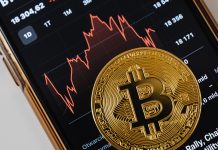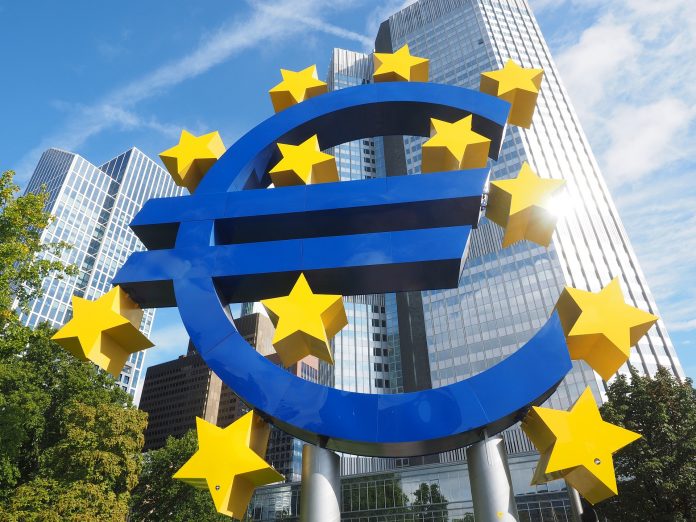Latest European central bank news show that while the first inflation figures for June are coming from the eurozone (in Germany, an unexpected slowdown in annual growth to 8.2%, in Spain, a surprising acceleration to 10.2%), the ECB’s annual conference brought more fragments to its prepared anti-fragmentation tool. Let us remind you that this is to enable the central bank to raise interest rates without destabilizing the bond markets or causing too sharp growth in the yields of the countries of the southern wing of the eurozone.
Read also about the situation in America right here!
European Central Bank News
Although the details of the new instrument remain unclear, it should essentially be another bond-buying (QE) program. Information is leaking from the ECB that the central bank plans to sterilize these purchases, i.e., to eliminate their effect on the market (overnight) interest rates. The ECB can achieve this in two ways – either by selling off other assets from its balance sheet or by draining liquidity from the banking system, for example, by offering a deposit that is more favorable than the deposit rate.
The second option seems to be preferred at the moment – on the one hand, and the ECB has already tried it with another SMP asset purchase program. Still, above all, it is politically more passable. The idea that the ECB would sell German bonds from its balance sheet and buy Italian bonds as a replacement is difficult for many of the more fiscally conservative eurozone states to digest…
The fundamental question then will be the design of the new QE itself – i.e., its size and duration. In terms of credibility, it makes sense for the asset purchase program to be unlimited and represent the ECB’s most robust possible commitment to capping credit spreads. If the promise is sufficiently credible for the markets, the ECB would theoretically never have to use this instrument in practice. This was also the case with the OMT program that accompanied Draghi’s “whatever it takes” in 2012.
Last news from European Central Bank, it remains largely unknown what criteria the ECB will choose to start buying bonds as part of the new QE. The ECB claims that it intends to react only when developments in the bond market are not in line with economic fundamentals. However, this should ideally be assessed by an external authority, for example, the European Stabilization Mechanism. Otherwise, the way to permanent and unlimited financing of the eurozone peripheral countries opens up. One way or another, we should learn the details – together with the first increase in interest rates – already at the July meeting of the ECB.
Eurodollar and ECB
Lower-than-expected German inflation caused by tax breaks pushed euro rates and thus the eurodollar below the 1.05 level. Moreover, at the ECB conference in Sintra, more hawkish voices were heard from the Fed (Mesterová) than from the ECB.
French inflation for June will be released this morning, giving a better picture of what the figure will look like for the entire monetary union (published tomorrow). In the afternoon, the market will look at the May figures on household consumption in the US. These will probably be weaker about the result of retail sales.Grayscale Sues SEC Over BTC ETF Rejection
The US Securities and Exchange Commission (SEC) has rejected several BTC spot ETFs applications. Grayscale seems to have grown weary of the regulator’s uncompromising approach and has decided to file a lawsuit. In particular, they object to the inconsistent treatment of individual investment vehicles since the SEC has no problem with futures ETFs. We see a different situation in other countries, where similar products are gradually coming to the market. They will likely be fascinating for investors, as the latest European Central Bank News show.
What is the significance of BTC Spot ETF?
An exchange-traded fund (ETF) combines securities such as stocks and commodities. It allows investors to buy shares on publicly available markets without actually owning the assets in question – in our case, Bitcoin. In October of last year, the Securities and Exchange Commission approved an application for a bitcoin futures ETF, which, however, speculates on the future price of BTC. They will have to wait in the US for the approval of a spot ETF directly tied to the spot price of Bitcoin.
According to Grayscale, the Grayscale Bitcoin Trust currently manages up to $12.9 billion. By approving the BTC spot ETF, they could offer their investors a much more exciting product and, above all, significantly lower management fees. In April, the company even launched a massive marketing campaign asking people to advocate for approval of the ETF and lobbying the Securities and Exchange Commission. It didn’t help them much to achieve a positive result.
A major legal battle begins
On Wednesday, the Securities and Exchange Commission (SEC) rejected Grayscale Investments’ request to convert its Grayscale Bitcoin Trust (GBTC) into an ETF. In their decision, they said Grayscale did not do enough to protect investors from fraudulent and manipulative practices. In the past, the regulator has rejected similar proposals for similar reasons – arguing that the cryptocurrency market is vulnerable to price manipulation, cyber-attacks, fraud, and insider trading. SEC Chairman Gary Gensler likens the cryptocurrency industry to the Wild West due to lack of regulation. The company’s response came almost immediately, and a major legal battle is likely ahead.
They appealed that decision to the United States Court of Appeals for the District of Columbia Circuit. They said they would continue to pursue all avenues for investor protection and fair regulatory treatment of bitcoin investment vehicles. In preparation for the Securities and Exchange Commission (SEC) ruling, Grayscale announced that it had retained legal counsel Donald B. Verrilli, former United States Attorney General and the law firm of Davis Polk & Wardwell. According to them, the Securities and Exchange Commission does not approach individual investment instruments consistently and acts arbitrarily.
Verrilli will be the company’s chief legal strategist and believes there is no reason for the regulator to continue artificially delaying the spot BTC ETF approval. However, a similar legal process can take years. In the end, the opinion of the regulatory body may still be preferred.
In Europe, we are witnessing the exact opposite
Jacobi Asset Management is a London-based digital asset management company preparing to launch the new Jacobi Bitcoin ETF. It is a spot bitcoin ETF that will begin trading on Euronext Amsterdam under the ticker BCOIN. Trading is expected to start in July, but the exact date has not yet been announced. The Jacobi Bitcoin ETF will thus become the first spot BTC ETF in Europe. Institutional and professional investors will access the ETF with a management fee of 1.5% per annum.
Khurshid, a former investment banker at Goldman Sachs, believes launching a new bitcoin ETF will help bring more stability to the cryptocurrency market amid a massive price slump. Launching this ETF in the Netherlands is a significant milestone in the global spot crypto ETF market. Spot BTC ETFs can be very popular in Europe, especially given the lack of alternative options to invest in Bitcoin through traditional financial instruments.
Canada (February 2021) and Australia (May 2022), Brazil, and Jersey are among the first countries with an approved spot BTC ETF. So globally, this product is slowly gaining ground, but investors in the US will have to wait a little longer.







